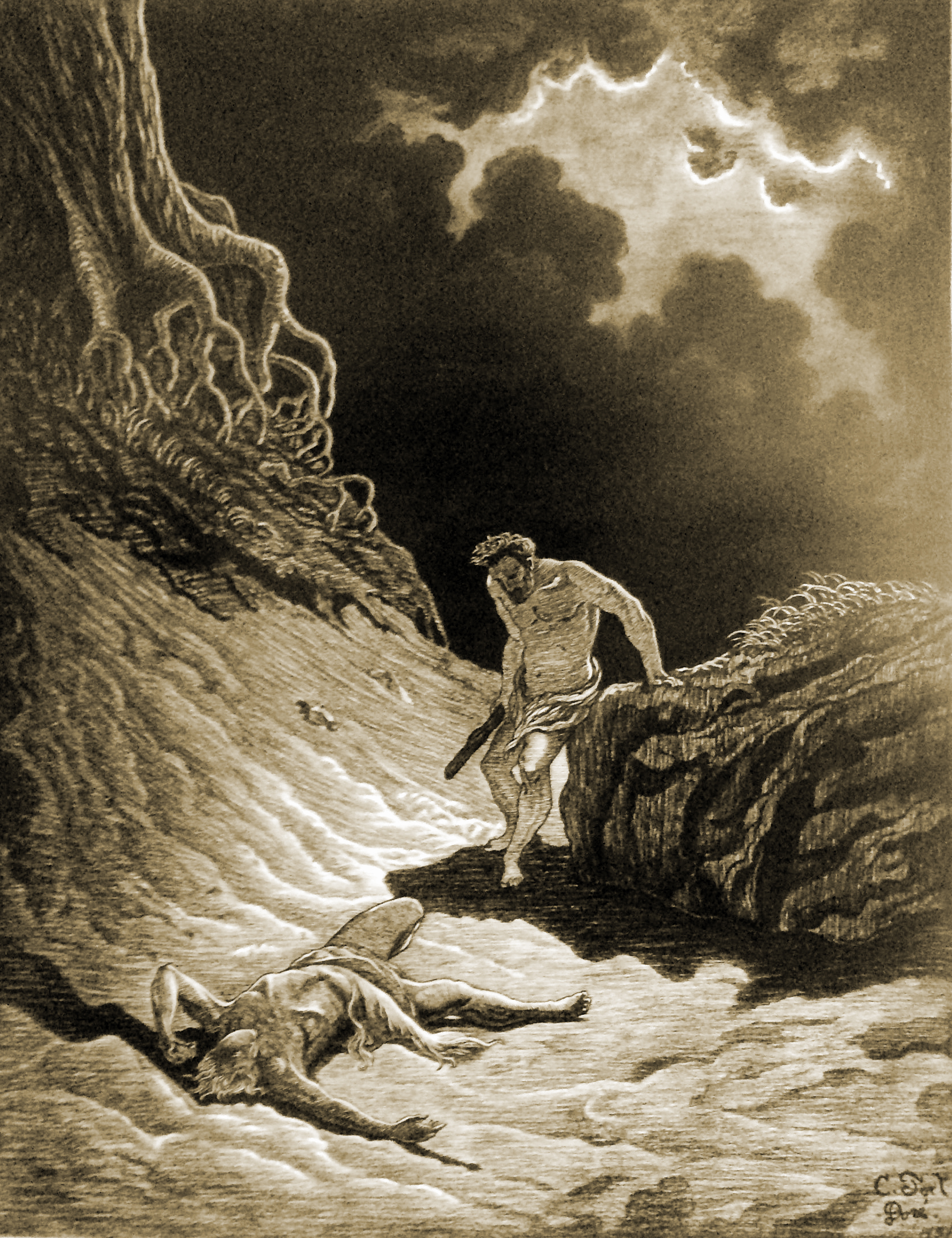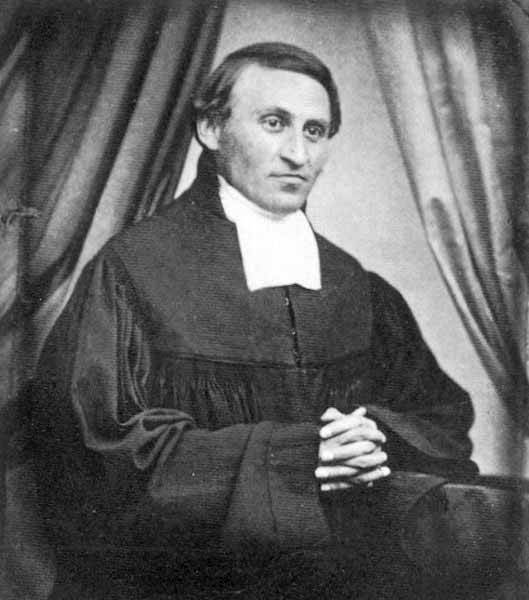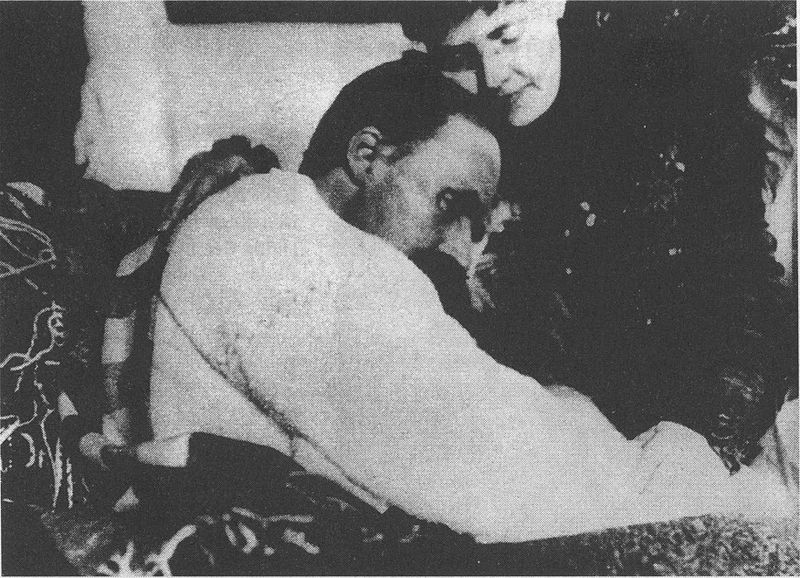
The History of the Decline and Fall
of the Roman Empire
Chapter XXIV
The retreat and death of Julian
Part I
The philosophical fable which Julian composed under the name of the Cæsars, is one of the most agreeable and instructive productions of ancient wit. During the freedom and equality of the days of the Saturnalia, Romulus prepared a feast for the deities of Olympus, who had adopted him as a worthy associate, and for the Roman princes, who had reigned over his martial people, and the vanquished nations of the earth.
The immortals were placed in just order on their thrones of state, and the table of the Cæsars was spread below the Moon in the upper region of the air. The tyrants, who would have disgraced the society of gods and men, were thrown headlong, by the inexorable Nemesis, into the Tartarean abyss. The rest of the Cæsars successively advanced to their seats; and as they passed, the vices, the defects, the blemishes of their respective characters, were maliciously noticed by old Silenus, a laughing moralist, who disguised the wisdom of a philosopher under the mask of a Bacchanal.
As soon as the feast was ended, the voice of Mercury proclaimed the will of Jupiter, that a celestial crown should be the reward of superior merit. Julius Cæsar, Augustus, Trajan, and Marcus Antoninus, were selected as the most illustrious candidates; the effeminate Constantine was not excluded from this honorable competition, and the great Alexander was invited to dispute the prize of glory with the Roman heroes. Each of the candidates was allowed to display the merit of his own exploits; but, in the judgment of the gods, the modest silence of Marcus pleaded more powerfully than the elaborate orations of his haughty rivals.
When the judges of this awful contest proceeded to examine the heart, and to scrutinize the springs of action, the superiority of the Imperial Stoic appeared still more decisive and conspicuous. Alexander and Cæsar, Augustus, Trajan, and Constantine, acknowledged, with a blush, that fame, or power, or pleasure had been the important object of their labors: but the gods themselves beheld, with reverence and love, a virtuous mortal, who had practised on the throne the lessons of philosophy; and who, in a state of human imperfection, had aspired to imitate the moral attributes of the Deity.
The value of this agreeable composition (the Cæsars of Julian) is enhanced by the rank of the author. A prince, who delineates, with freedom, the vices and virtues of his predecessors, subscribes, in every line, the censure or approbation of his own conduct. In the cool moments of reflection, Julian preferred the useful and benevolent virtues of Antoninus; but his ambitious spirit was inflamed by the glory of Alexander; and he solicited, with equal ardor, the esteem of the wise, and the applause of the multitude. In the season of life when the powers of the mind and body enjoy the most active vigor, the emperor who was instructed by the experience, and animated by the success, of the German war, resolved to signalize his reign by some more splendid and memorable achievement.
The ambassadors of the East, from the continent of India, and the Isle of Ceylon, had respectfully saluted the Roman purple. The nations of the West esteemed and dreaded the personal virtues of Julian, both in peace and war. He despised the trophies of a Gothic victory, and was satisfied that the rapacious Barbarians of the Danube would be restrained from any future violation of the faith of treaties by the terror of his name, and the additional fortifications with which he strengthened the Thracian and Illyrian frontiers. The successor of Cyrus and Artaxerxes was the only rival whom he deemed worthy of his arms; and he resolved, by the final conquest of Persia, to chastise the naughty nation which had so long resisted and insulted the majesty of Rome.
As soon as the Persian monarch was informed that the throne of Constantius was filed by a prince of a very different character, he condescended to make some artful, or perhaps sincere, overtures towards a negotiation of peace. But the pride of Sapor was astonished by the firmness of Julian; who sternly declared, that he would never consent to hold a peaceful conference among the flames and ruins of the cities of Mesopotamia; and who added, with a smile of contempt, that it was needless to treat by ambassadors, a she himself had determined to visit speedily the court of Persia. The impatience of the emperor urged the diligence of the military preparations.
The generals were named; and Julian, marching from Constantinople through the provinces of Asia Minor, arrived at Antioch about eight months after the death of his predecessor. His ardent desire to march into the heart of Persia, was checked by the indispensable duty of regulating the state of the empire; by his zeal to revive the worship of the gods; and by the advice of his wisest friends; who represented the necessity of allowing the salutary interval of winter quarters, to restore the exhausted strength of the legions of Gaul, and the discipline and spirit of the Eastern troops.
Julian was persuaded to fix, till the ensuing spring, his residence at Antioch, among a people maliciously disposed to deride the haste, and to censure the delays, of their sovereign. If Julian had flattered himself, that his personal connection with the capital of the East would be productive of mutual satisfaction to the prince and people, he made a very false estimate of his own character, and of the manners of Antioch.
The warmth of the climate disposed the natives to the most intemperate enjoyment of tranquillity and opulence; and the lively licentiousness of the Greeks was blended with the hereditary softness of the Syrians. Fashion was the only law, pleasure the only pursuit, and the splendor of dress and furniture was the only distinction of the citizens of Antioch. The arts of luxury were honored; the serious and manly virtues were the subject of ridicule; and the contempt for female modesty and reverent age announced the universal corruption of the capital of the East.
The love of spectacles was the taste, or rather passion, of the Syrians; the most skilful artists were procured from the adjacent cities; a considerable share of the revenue was devoted to the public amusements; and the magnificence of the games of the theatre and circus was considered as the happiness and as the glory of Antioch. The rustic manners of a prince who disdained such glory, and was insensible of such happiness, soon disgusted the delicacy of his subjects; and the effeminate Orientals could neither imitate, nor admire, the severe simplicity which Julian always maintained, and sometimes affected.
The days of festivity, consecrated, by ancient custom, to the honor of the gods, were the only occasions in which Julian relaxed his philosophic severity; and those festivals were the only days in which the Syrians of Antioch could reject the allurements of pleasure. The majority of the people supported the glory of the Christian name, which had been first invented by their ancestors: they contended themselves with disobeying the moral precepts, but they were scrupulously attached to the speculative doctrines of their religion. The church of Antioch was distracted by heresy and schism; but the Arians and the Athanasians, the followers of Meletius and those of Paulinus, were actuated by the same pious hatred of their common adversary.
The strongest prejudice was entertained against the character of an apostate, the enemy and successor of a prince who had engaged the affections of a very numerous sect; and the removal of St. Babylas excited an implacable opposition to the person of Julian. His subjects complained, with superstitious indignation, that famine had pursued the emperor’s steps from Constantinople to Antioch; and the discontent of a hungry people was exasperated by the injudicious attempt to relieve their distress. The inclemency of the season had affected the harvests of Syria; and the price of bread, in the markets of Antioch, had naturally risen in proportion to the scarcity of corn.
But the fair and reasonable proportion was soon violated by the rapacious arts of monopoly. In this unequal contest, in which the produce of the land is claimed by one party as his exclusive property, is used by another as a lucrative object of trade, and is required by a third for the daily and necessary support of life, all the profits of the intermediate agents are accumulated on the head of the defenceless customers. The hardships of their situation were exaggerated and increased by their own impatience and anxiety; and the apprehension of a scarcity gradually produced the appearances of a famine. When the luxurious citizens of Antioch complained of the high price of poultry and fish, Julian publicly declared, that a frugal city ought to be satisfied with a regular supply of wine, oil, and bread; but he acknowledged, that it was the duty of a sovereign to provide for the subsistence of his people.
With this salutary view, the emperor ventured on a very dangerous and doubtful step, of fixing, by legal authority, the value of corn. He enacted, that, in a time of scarcity, it should be sold at a price which had seldom been known in the most plentiful years; and that his own example might strengthen his laws, he sent into the market four hundred and twenty-two thousand modii, or measures, which were drawn by his order from the granaries of Hierapolis, of Chalcis, and even of Egypt.
The consequences might have been foreseen, and were soon felt. The Imperial wheat was purchased by the rich merchants; the proprietors of land, or of corn, withheld from the city the accustomed supply; and the small quantities that appeared in the market were secretly sold at an advanced and illegal price. Julian still continued to applaud his own policy, treated the complaints of the people as a vain and ungrateful murmur, and convinced Antioch that he had inherited the obstinacy, though not the cruelty, of his brother Gallus.
The remonstrances of the municipal senate served only to exasperate his inflexible mind. He was persuaded, perhaps with truth, that the senators of Antioch who possessed lands, or were concerned in trade, had themselves contributed to the calamities of their country; and he imputed the disrespectful boldness which they assumed, to the sense, not of public duty, but of private interest.
The whole body, consisting of two hundred of the most noble and wealthy citizens, were sent, under a guard, from the palace to the prison; and though they were permitted, before the close of evening, to return to their respective houses, the emperor himself could not obtain the forgiveness which he had so easily granted. The same grievances were still the subject of the same complaints, which were industriously circulated by the wit and levity of the Syrian Greeks.
During the licentious days of the Saturnalia, the streets of the city resounded with insolent songs, which derided the laws, the religion, the personal conduct, and even the beard, of the emperor; the spirit of Antioch was manifested by the connivance of the magistrates, and the applause of the multitude. The disciple of Socrates was too deeply affected by these popular insults; but the monarch, endowed with a quick sensibility, and possessed of absolute power, refused his passions the gratification of revenge.
A tyrant might have proscribed, without distinction, the lives and fortunes of the citizens of Antioch; and the unwarlike Syrians must have patiently submitted to the lust, the rapaciousness and the cruelty, of the faithful legions of Gaul. A milder sentence might have deprived the capital of the East of its honors and privileges; and the courtiers, perhaps the subjects, of Julian, would have applauded an act of justice, which asserted the dignity of the supreme magistrate of the republic.
But instead of abusing, or exerting, the authority of the state, to revenge his personal injuries, Julian contented himself with an inoffensive mode of retaliation, which it would be in the power of few princes to employ. He had been insulted by satires and libels; in his turn, he composed, under the title of the Enemy of the Beard, an ironical confession of his own faults, and a severe satire on the licentious and effeminate manners of Antioch.
This Imperial reply was publicly exposed before the gates of the palace; and the Misopogon still remains a singular monument of the resentment, the wit, the humanity, and the indiscretion of Julian. Though he affected to laugh, he could not forgive. His contempt was expressed, and his revenge might be gratified, by the nomination of a governor worthy only of such subjects; and the emperor, forever renouncing the ungrateful city, proclaimed his resolution to pass the ensuing winter at Tarsus in Cilicia. Yet Antioch possessed one citizen, whose genius and virtues might atone, in the opinion of Julian, for the vice and folly of his country.
The sophist Libanius was born in the capital of the East; he publicly professed the arts of rhetoric and declamation at Nice, Nicomedia, Constantinople, Athens, and, during the remainder of his life, at Antioch. His school was assiduously frequented by the Grecian youth; his disciples, who sometimes exceeded the number of eighty, celebrated their incomparable master; and the jealousy of his rivals, who persecuted him from one city to another, confirmed the favorable opinion which Libanius ostentatiously displayed of his superior merit.
The preceptors of Julian had extorted a rash but solemn assurance, that he would never attend the lectures of their adversary: the curiosity of the royal youth was checked and inflamed: he secretly procured the writings of this dangerous sophist, and gradually surpassed, in the perfect imitation of his style, the most laborious of his domestic pupils. When Julian ascended the throne, he declared his impatience to embrace and reward the Syrian sophist, who had preserved, in a degenerate age, the Grecian purity of taste, of manners, and of religion.
The emperor’s prepossession was increased and justified by the discreet pride of his favorite. Instead of pressing, with the foremost of the crowd, into the palace of Constantinople, Libanius calmly expected his arrival at Antioch; withdrew from court on the first symptoms of coldness and indifference; required a formal invitation for each visit; and taught his sovereign an important lesson, that he might command the obedience of a subject, but that he must deserve the attachment of a friend.
The sophists of every age, despising, or affecting to despise, the accidental distinctions of birth and fortune, reserve their esteem for the superior qualities of the mind, with which they themselves are so plentifully endowed. Julian might disdain the acclamations of a venal court, who adored the Imperial purple; but he was deeply flattered by the praise, the admonition, the freedom, and the envy of an independent philosopher, who refused his favors, loved his person, celebrated his fame, and protected his memory.
The voluminous writings of Libanius still exist; for the most part, they are the vain and idle compositions of an orator, who cultivated the science of words; the productions of a recluse student, whose mind, regardless of his contemporaries, was incessantly fixed on the Trojan war and the Athenian commonwealth.
Yet the sophist of Antioch sometimes descended from this imaginary elevation; he entertained a various and elaborate correspondence; he praised the virtues of his own times; he boldly arraigned the abuse of public and private life; and he eloquently pleaded the cause of Antioch against the just resentment of Julian and Theodosius. It is the common calamity of old age, to lose whatever might have rendered it desirable; but Libanius experienced the peculiar misfortune of surviving the religion and the sciences, to which he had consecrated his genius.
The friend of Julian was an indignant spectator of the triumph of Christianity; and his bigotry, which darkened the prospect of the visible world, did not inspire Libanius with any lively hopes of celestial glory and happiness.










